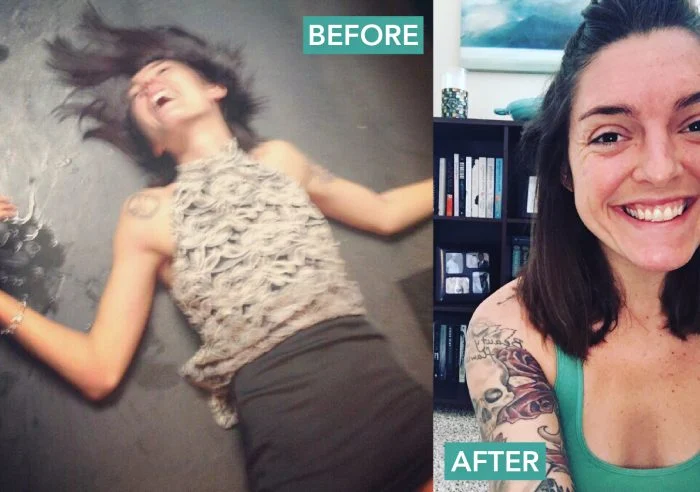Recovery did not make my life any easier, but it did make it worth it.
When I first got sober, I wasriding this highof “This is awesome! I am changing my life for the better! I am finally doing it!” But it wasn’t long before that feeling wore off. I was slapped in the face by the reality of “This is your life now, and you chose to get rid of the things that you were using to cope with it!”
One of the hardest parts of recovery is accepting that you are now going to have to feelemotions that you were trying to suppresswith drinking, drugging or whatever you used as a form of escape from yourself. Adjusting took a lot of effort, and honestly, it is still hard to accept. That is exactly why I am writing:Recovery did not make my life any easier, but it did make it worth it.
Working Through Early Recovery
When I first started sharing my story with the world, I was under the false impression that I needed to glorify the newly-sober life I was living and prove how much better it was. Don’t get me wrong; I am grateful for every day that I have been able to steer clear of my vices, but I no longer feel the need to convince others that life is easier because of it. Making that claim would be a lie.
If recovery were easy, we wouldn’t need to look for proof of how attainable it is within someone else’s story. If you are anything like me, thebeginning of your recoverymight mean reading as manyarticles on sobrietyas you can find, and attending meetings so you can surround yourself with people who understand. You slowly embrace the idea that you can do this one day at a time. You aren’t convincing yourself it’s going to be easy. You’re putting in the work.
Treatment Can Be Life Changing. Reach out today.
Whether you are struggling with addiction, mental health or both, our expert team is here to guide you every step of the way. Don’t wait— reach out today to take the first step toward taking control of your life.

Defining My Reason for Recover
It was scary owning up to the truth of my situation. I had to come to terms with the fact that I could not live my life the same way as people who seemed to have a grasp on the whole moderation thing. It was hard feeling like I had to put on this front to make other people comfortable around me, instead of just saying,“You know what? Recovery is hard every single day, but what’s important is that I am doing it! I am recovering!”
I also feared what I had to lose by choosing sobriety as a way of life. I made the mistake of thinking there was something to lose in the first place. Instead, I had everything to gain. Sure, we may lose certain “friends,” and we may have to stop going to certain places, but in the end, we must do what is best for us, and recovery is the only way to get there.
As time went on, I realized that I was always looking for a reason to stay in recovery. The only reason I needed was the belief that it would be worthy of my continuous pursuit. Recovery is just that — worthy of our effort.
What My Recovery Means to Me Now
Recoveryhas given me my life back, the good and the bad — the feelings that a human is supposed to experience. It forced me to start showing up for life and learn how to cope with whatever “showing up” may entail. These things take time. I’m two years into my recovery, and I still face certain challenges, but there is a sense of pride in making it to the other side of an obstacle without needing drugs or alcohol to get there. Recovery is a muscle, something that gets stronger and stronger the more you work it and challenge yourself.
Anything new is going to be uncomfortable, and anything worth doing is going to be hard. Nobody ever said recovery was going to be easy,but ask anybody in recovery, and I guarantee they will tell you that it’s worth it.








